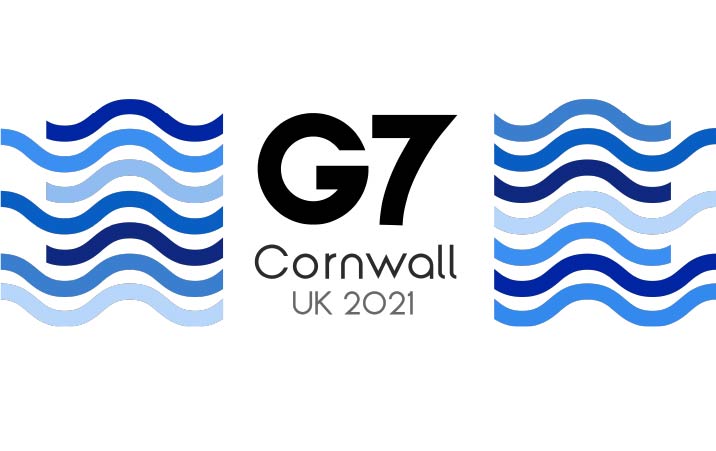At the G7 Summit held last week in Cornwall, the UK government has pledged £430 million of new UK aid funding for education for children in the world’s poorest countries, with a focus on girls’ education. The funding will go to the Global Partnership for Education.
Responding to the pledge, Sightsavers has acknowledged that this is a welcome start. But much more is needed to address the global learning crisis that has affected children around the world, particularly girls and boys with disabilities. Sightsavers has also called for additional funding to be committed at the upcoming Global Education Summit being held in London in July.
Dom Haslam, Sightsavers’ director of policy and programme strategy, said: “The COVID-19 pandemic has exacerbated the education crisis. This has seen education inequalities compounded for children who were already marginalised, including girls and boys with disabilities. The UK government, which is hosting the Global Education Summit next month, must demonstrate leadership on inclusive education by investing further and pushing other nations to help achieve the Global Partnership for Education’s £5 billion target. These financial commitments must be underpinned by policies that promote equity and equality, with targeted investment for children with disabilities.
“This commitment must also be viewed in the context of the wider cuts to the UK’s aid budget in the current and previous year. It is imperative that the ODA budget is returned to its former levels in the next financial year as the current cuts will impact on girls’ ability to participate in education, undermine the UK’s leadership, and reduce the ability of the UK government to call on other governments to step up.
“The UK government has committed to being a global leader on disability inclusion and has previously been instrumental in driving forward disability inclusion on the board of the Global Partnership for Education. It is critical that they continue to play this role.”
Under its Equal World campaign, Sightsavers has been calling for disability-inclusive global development since 2013, and in that time has seen significant recognition of disability as a priority issue.
An open letter to G7 leaders can be read here: www.sightsavers.org/dontfailus
Children in Sierra Leone have been recorded voicing the message to world leaders here: https://youtu.be/MKvWXmde5oY
ENDS
Notes to editors:
For information on Sightsavers’ Equal World campaign and to view our open letter to G7 leaders, visit www.sightsavers.org/dontfailus
·As many as than 33 million children with disabilities in low and middle income countries were out of school before the pandemic. This is around 50 per cent of all children with disabilities in these countries – and during the pandemic the barriers they face have only increased.
·Globally, the literacy rate for adults with disabilities is three per cent and for women with disabilities, just one per cent.
·According to the World Bank, disability has a greater impact on access to education than gender, household economic status or living rurally.
·Education systems that exclude children with disabilities are likely to perpetuate cycles of poverty and inequality.
·Every child has the right to education, but children with disabilities, especially girls, are missing out. Children with
·disabilities are less likely to go to school, less likely to complete school and more likely to be illiterate than children without disabilities – and during the pandemic the barriers they face have only increased.
·Sightsavers’ Equal World campaign is calling on world leaders and governments to make inclusive, quality education available and accessible to children with disabilities, particularly girls.
·The G7 and Global Education summits in 2021 are pivotal moments for politicians to recommit to – and put into action – their SDG promise to ensure children with disabilities are not left behind. This is even more important as countries address the learning crisis resulting from the global pandemic.
·Too many children are being denied their fundamental right to education because of barriers including prejudice and discrimination against people with disabilities, a lack of teachers trained to support students with disabilities, and inaccessible schools and educational materials.
·Post-pandemic, if all governments are to meet their commitment to ensure inclusive and equitable quality education (Sustainable Development Goal 4) and realise the right to inclusive education for children with disabilities (Article 24, CRPD), they must take action by making firm commitments that will ensure children with disabilities, particularly girls, can not just attend school, but have the support they require to learn and thrive.
·While the global focus is on investment in education, there is an opportunity that cannot be missed to ensure that children with disabilities can learn, live independent lives and reach their full potential.
About Sightsavers
Sightsavers is an international organization that works in more than 30 low and middle-income countries to end avoidable blindness, treat and eliminate neglected tropical diseases, and promote equality of opportunity for people with disabilities. It is a registered UK charity (Registered charity numbers 207544 and SC038110).
Courtesy – Reliefweb








